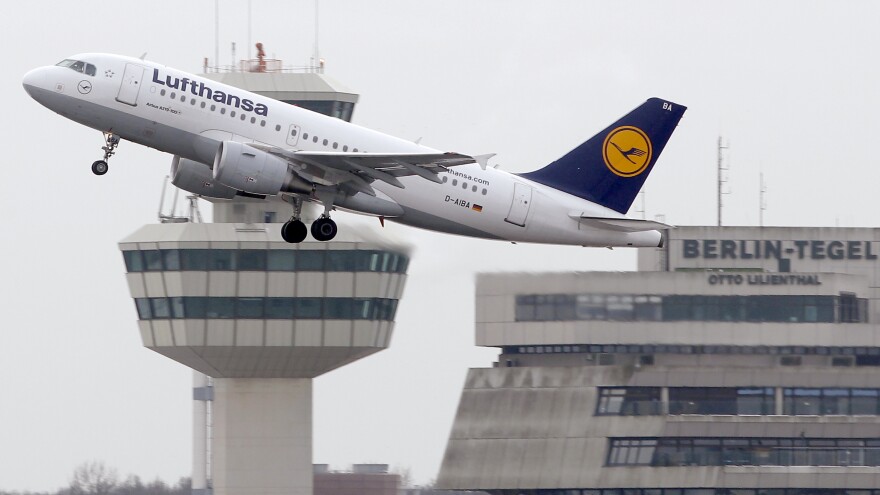Berlin's Tegel is a relic of the Cold War period when each sector of the divided city had its own airport. After German reunification, it was decided that Berlin needed a new international airport on its outskirts, called Berlin Brandenburg, or BER.
If all had gone according to plan, Tegel would have closed more than five years ago when BER was supposed to welcome its first passengers. But nothing about the project has gone according to plan: the airport is billions over budget and it still isn't clear when it will be ready.
"It's really embarrassing for us in Berlin that it's not open yet," said Maren Jasper-Winter, a politician in the local Berlin parliament. Her party, the Free Democrats (FDP), started circulating petitions to save Tegel Airport when it became clear that the new airport would be delayed — and too small to cope with the growing number of people expected to travel to Germany's capital.
The FDP's efforts are the reason Berlin residents will have the chance to vote in a referendum on Sunday — the same day as the national election in Germany — to keep Tegel open or not.
For voter Sven Merkel, a teacher in Berlin, the Tegel question is simple.
"It takes me — from leaving the airplane to entering my apartment — 25 minutes," Merkel says. "With public transport, not with a car."
It's not only a question of convenience though.
"Tegel is kind of an identity thing for West Berlin," Merkel says. He notes the distinctive hexagonal architecture of the '70s-era main terminal, and the historical significance of the site, which was used to bring supplies to West Berlin during the Soviet Blockade of 1948-49.
Even many fans of Tegel concede that an airport probably would not be built so close to homes and schools today. And indeed, the very thing that people like Merkel adore about Tegel — the fact that it's so accessible, right in the middle of the city — is also the main argument for closing the airport.
Helmut Moeller explained this outside of a cafe in Kurt-Schumacher-Platz in the northwest of the city. Moeller is involved with Tegel Schliessen, the citizens' initiative in favor of closing the airport. Every few minutes his voice was drowned out by a plane passing overhead and he winced slightly at the noise. Moeller lives not far from the flight path for Tegel and he says in summertime he can't sleep with his windows open because late arrivals wake him up.
"It's a health burden – for hearing but also on a psychological level," Moeller said. "This is why we're saying there can't be an airport in the middle of the city where 300,000 people live and work. Here in the flight path there are over 100 schools and kindergartens and the children are very seriously affected."
In addition to the noise concerns, many of the airport's neighbors want the land to be used for new affordable housing — something they say the city needs far more than two airports.
The issue has not only divided the city, it has also attracted the attention of foreign companies.
Kenny Jacobs is Chief Marketing Officer for Ryanair. He says Berlin needs two airports.
"It's absolutely ridiculous," Jacobs said after a press conference at Tegel last week. "In contrast to London, in contrast to Paris, even in contrast to Dublin. Dublin now has more airport capacity than Berlin, even though Dublin is about a quarter of the size."
Polling published by Berlin daily newspaper Der Tagesspiegel has shown the "Save Tegel" side with a consistent but narrowing lead. But the results of Sunday's referendum will be nonbinding.
Still, Jasper-Winter says a "ja" vote would be impossible for the city government to ignore.
"If you have a political will and you have a decision by the people saying we want it to stay open, then the government has to act," she said.
If Berliners do vote to keep Tegel Sunday, getting the airport up to date will require significant investment. Tegel has long been in limbo, with temporary terminals and aging systems as it has been long-expected to close soon. Bloomberg wrote recently that Tegel feels like it is "held together with duct tape." But perhaps, the investment is one that the city is willing to make, in the interest of convenience and nostalgia.
Copyright 2021 NPR. To see more, visit https://www.npr.org.



